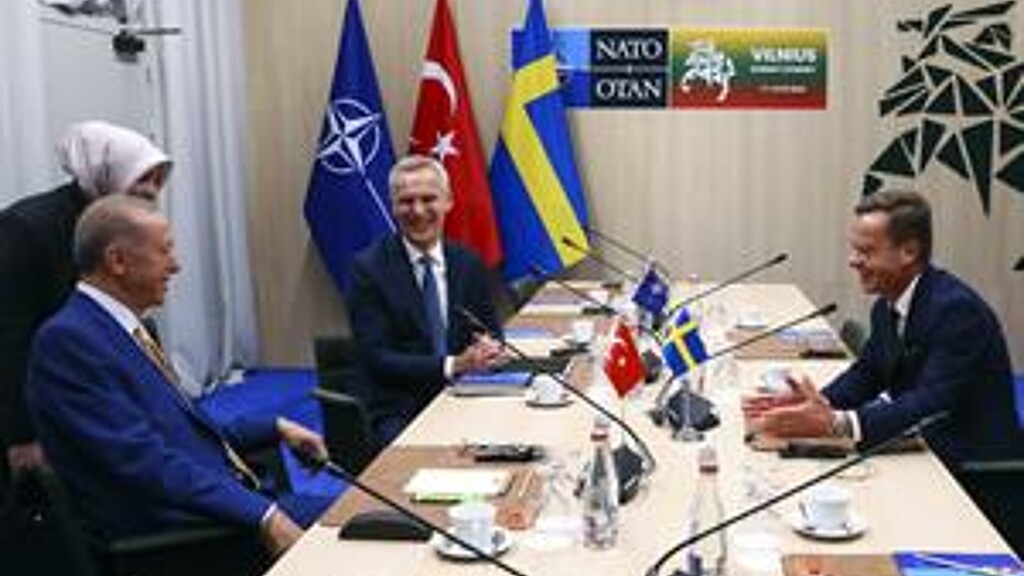Politics
Turkey agrees to back Sweden's NATO membership bid
As a result of “Turkey’s legitimate security concerns,” Sweden amended its constitution, changed its laws, and expanded its operations against the Kurdistan Workers Party

July 11, 2023 9:09am
Updated: July 11, 2023 9:09am
Turkish President Recep Tayyip Erdogan on Monday agreed to support Sweden’s bid to join the NATO military alliance, after almost a year of blocking the Nordic country’s membership.
The decision was announced on Monday after talks were held between Turkish and Swedish leaders in Vilnius, the capital of Lithuania, said the military alliance’s chief Jens Stoltenberg.
"I am very happy, it is a good day for Sweden," said Swedish Prime Minister Ulf Kristersson about the decision.
In May of last year, Sweden and Finland announced their intention to join NATO, after years of wartime neutrality. A unanimous decision by NATO’s 31 member countries is needed to allow a country to join. While Finland was able to join the alliance in April of this year, Sweden’s case did not move forward. Turkey and Hungary were the only countries in the alliance that formally opposed Sweden’s joining of NATO.
As a result of “Turkey’s legitimate security concerns,” Sweden amended its constitution, changed its laws, and expanded its operations against the Kurdistan Workers Party, said Stoltenberg. Turkey claimed that the Nordic country hosted a Kurdish rebel group, which the Turkish government opposes, and accused Swedish officials of participating in Islamophobic demonstrations.
While this is a “historic step,” it remains unclear when Sweden could formally join the military alliance, continued Stoltenberg. The bid must first move through the Turkish Parliament, which will vote to approve it.
Additionally, Hungary’s vote is still needed for Sweden to move ahead with its membership. However, Prime Minister Victor Orban said Hungary would not be the last country to ratify.
"I think that problem will be solved," he added.
By joining NATO, Sweden will be protected under the collective security guarantee of Article 5, which states that "an armed attack against one or more of them in Europe or North America shall be considered an attack against them all."










